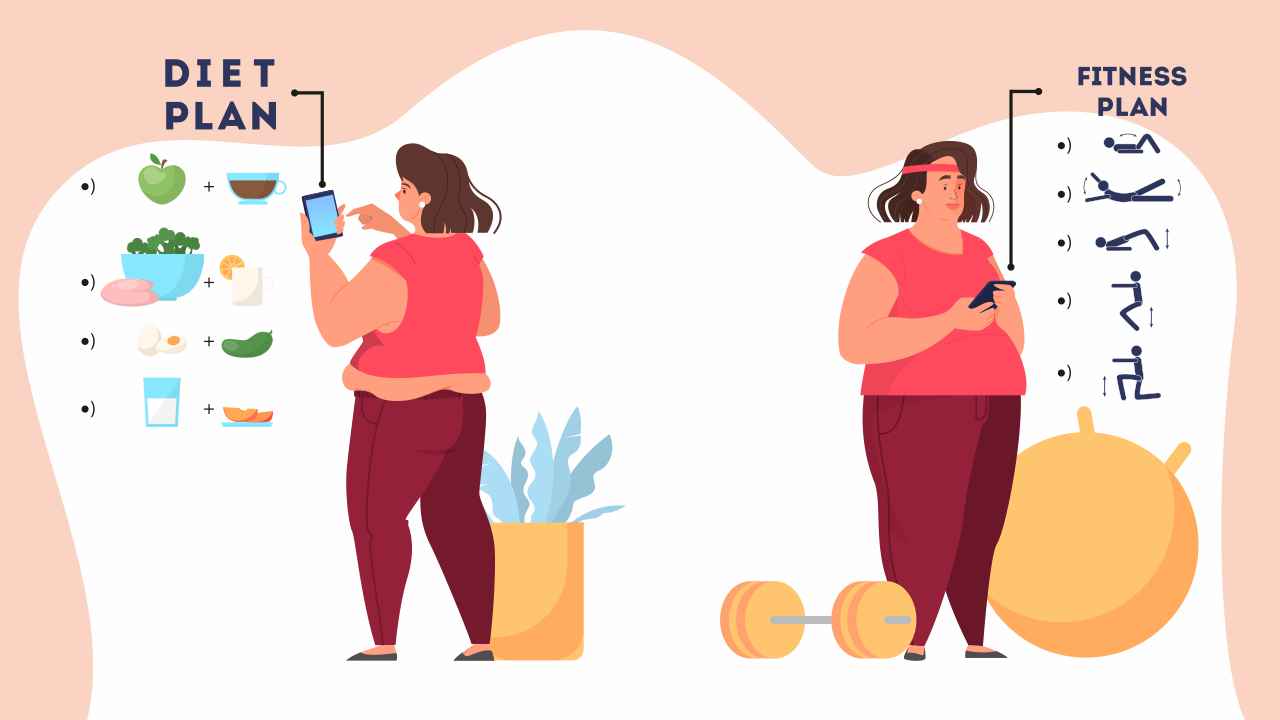
Fasting for weight loss, is it effective?

Fasting is a time period in which you voluntarily restrict yourself from eating. To restrict is to lose, hence fasting for weight loss is one of the popular strategies among people who wish to lose weight. But fasting can be undertaken for religious or health reasons, and has been practiced for thousands of years.
It is an integral part of our daily lives because we are intermittently fasting anytime we are not eating. For instance, the time between your last meal before going to bed and the first meal of the next day, which is approximately 12-14 hours, is when you fast. This is why the first meal of the day is called breakfast, as you are breaking your overnight fast.
Fasting for weight loss
Fasting has recently gained considerable popularity for weight loss and falls under the umbrella of fad diets. As a weight loss strategy, it focuses less on what you eat than when you eat. This is why for some people, fasting feels more manageable than cutting and counting calories daily.
Generally, fasting involves restricting energy intake for a few days per week or few hours each day, resulting in an overall weekly calorie deficit without restricting food groups. This calorie deficit allows your body to use its stored energy by burning off the excess fat without posing a risk of nutritional deficiencies.
A large body of scientific evidence suggests that fasting is an effective method of reducing body weight and fat in the short term
For example, studies have shown that overweight and obese individuals can lose 3%-8% of their basal weight and reduce their waist circumference by 4%-7% by fasting intermittently for three to 12 weeks.
Fasting may also lead to much smaller muscle mass reduction during weight loss compared to continuous calorie restriction approaches, which may result in better exercise performance. However, there is no research related to the effectiveness of fasting in achieving and maintaining weight-loss goals in the long term.
Also read: Foods That Keep You Fuller for Longer on Fewer Calories
Popular fasting regimens
Many fasting regimens, such as fasting windows in a day to whole day tests, are currently trending. Some of these include:
1. Alternate day fasting
This regime involves alternate days of unrestricted eating followed by one day of complete abstinence from food and drink.
2. Alternate day modified fasting
This fasting method recommends alternating days of unrestricted eating followed by partial fast days, which usually include 25%-50% of basal energy requirements.
3. Intermittent fasting
This fasting regime endorses one to two fast days per week and eating freely on the remaining days. For instance, the 5:2 diet comes under this category.
4. Time-restricted fasting
This is the most popular fasting approach that suggests eating all your meals within a controlled timeframe every day. Some examples of this include 16:8, wherein you fast for 16 hours and eat for eight hours, and 20:4, wherein you are fasting for 20 hours and eating only for four hours each day.
However, fasting does not give you the license to eat large portions of unhealthy, high-calorie, and high-fat foods during non-fasting periods. You still need to eat recommended portions of each food group to maintain a negative energy balance and avoid health complications.
How does fasting affect your body?
Calorie restriction through fasting can potentially bring about several changes in your body’s metabolism.
- It creates an acute negative energy balance within your body during which the body exhausts its glucose stores and switches over to a fat-burning state.
- It decreases your blood glucose levels, hence preventing extra energy from being stored as fat.
- Could help reduce your blood insulin levels by 20%-31% and improve your cells’ insulin sensitivity, which enhances the use of your stored fat to generate energy.
- May help stimulate your nervous system to send chemical signals to your fat cells, instructing them to break down fat into fatty acids that can be used for energy production.
- Could help lower your heart rate and blood pressure by boosting your basal metabolic rate, which is the amount of energy your body burns while resting by 4%–14%
- It may reduce oxidative stress within your body by decreasing the production of inflammatory chemicals and harmful free radicals.
- Likely to raise the breakdown of old or damaged white blood cells while simultaneously triggering the production of new white blood cells, thus improving your body’s immunity.
- It may decrease the levels of triglycerides and LDL cholesterol in your blood by improving liver function and health.
Health benefits of fasting
Let’s find out what are the benefits of fasting besides weight loss:
1. Improved cognitive performance
Studies indicate that intermittent fasting may boost working memory and verbal memory.
2. Reduced risk of cardiac diseases
Research suggests that intermittent fasting may improve heart-related parameters such as lowering blood pressure, resting heart rate, improve lipid profile among others.
3. Reduced risk of metabolic diseases
Fasting may reduce the risk of diabetes and obesity by lowering blood glucose levels and enhancing insulin sensitivity.
4. Slows down aging
A few studies indicate that fasting may delay the body’s aging process by reducing oxidative damage of cells and improving cellular regeneration.
5. Supports cancer treatment
Limited research suggests that fasting may lessen the harmful side-effects of chemotherapy, particularly suppressing the immune system.
6. Reduced risk of inflammatory diseases
Fasting may reduce the symptoms of irritable bowel syndrome and arthritis.
Does fasting have any side-effects?
There may be some potential side effects of fasting, if you follow an unplanned and unsupervised fasting plan such as:
- Increased hunger
- Hyperacidity and heartburn
- Constipation
- Fatigue and dizziness
- Lack of concentration
- Headaches
- Weakened immune system, liver and kidney problems, and irregular heartbeat
- Vitamin and mineral deficiencies
Is fasting the right approach for you?
Fasting is a safe weight loss approach for healthy, well-nourished people. However, it may not be ideal for certain individuals such as:
- Women who are pregnant or breastfeeding
- Diabetic individuals
- People with nutritional deficiencies
- Individuals with a history of eating disorders
Although the finer details of some fasting methods may be subject to trends, there is relatively more scientific evidence that exists for them. Fasting may also provide other health-related advantages compared to the regular approaches to weight loss.
However, do note that all fasting regimes may have varying effects on different people. Therefore, it is best to consult a dietitian or nutritionist before adopting this method for weight management. They can help you understand your nutritional needs and customize a safe calorie deficit diet plan for weight loss.
References
1. de Cabo R, Mattson MP. Effects of intermittent fasting on health, aging, and disease. New England Journal of Medicine. 2019; 381(26): 2541-2551.
2. Barnosky AR, Hoddy KK, Unterman TG. Intermittent fasting vs daily calorie restriction for type 2 diabetes prevention: a review of human findings. Translational Research. 2014; 164(4): 302-311.
3. Horne BD, Muhlestein JB, Anderson JL. Health effects of intermittent fasting: hormesis or harm? A systematic review. The American Journal of Clinical Nutrition. 2015; 102(2): 464-470.
4. Harris L, Hamilton S, Azevedo LB. Intermittent fasting interventions for treatment of overweight and obesity in adults: a systematic review and meta-analysis. JBI Evidence Synthesis. 2018; 16(2): 507-547.
5. Kuchkuntla AR, Limketkai B, Nanda S. Fad diets: hype or hope?. Current Nutrition Reports. 2018; 7(4): 310-323.
6. Cheng CW, Adams GB, Perin L. Prolonged fasting reduces IGF-1/PKA to promote hematopoietic-stem-cell-based regeneration and reverse immunosuppression. Stem Cell. 2014; 14(6): 810-823.













